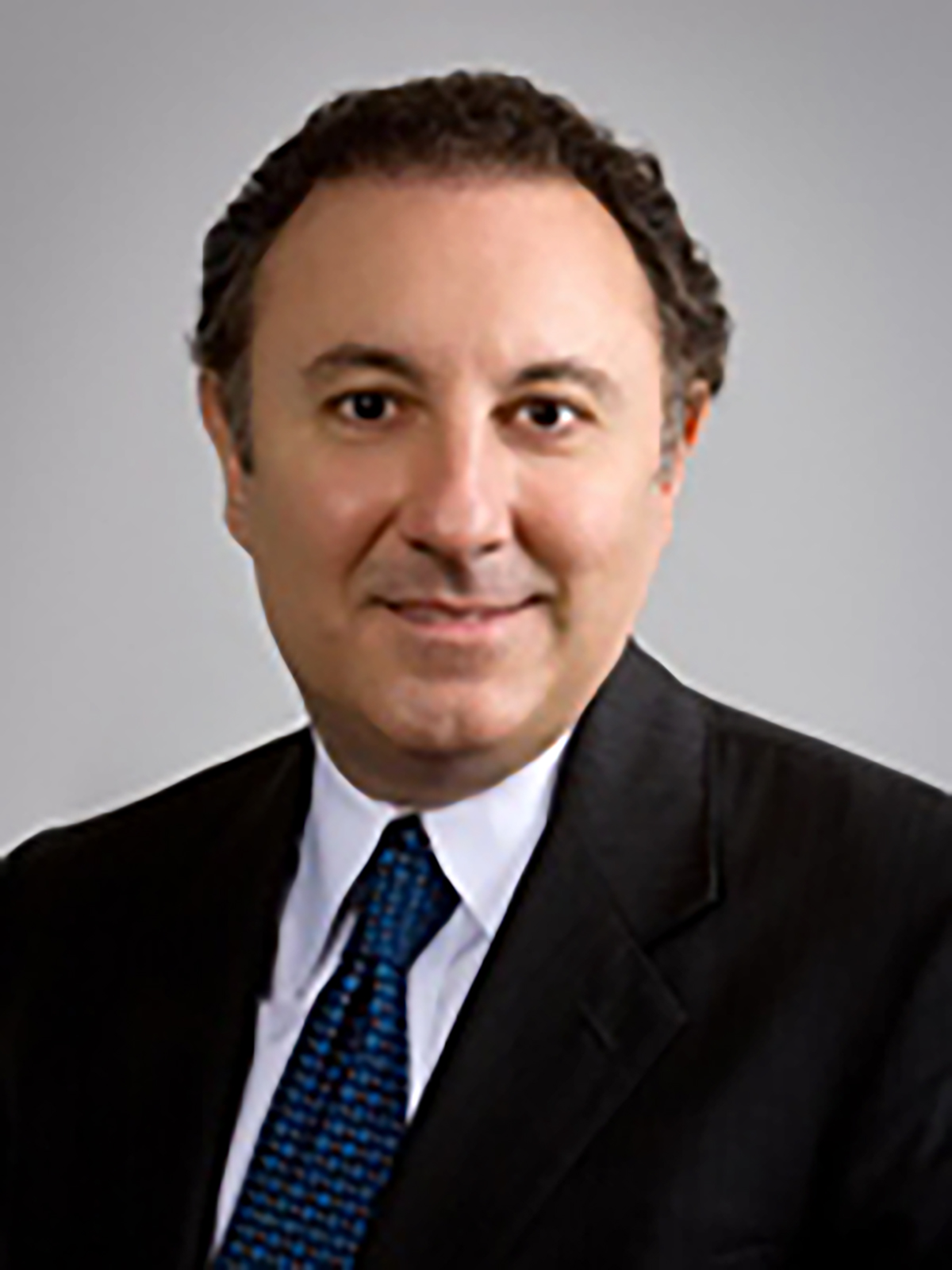“The secret of a great fortune made without apparent cause is soon forgotten, if the crime is committed in a respectable way.” –
—La Comédie humaine by Honoré de Balzac, 1900 translation
Internationally recognized trial lawyer Thomas Ajamie has made a career of prying the shield of respectability from trusted bankers and financial advisers who are, in fact, corrupt. For more than 30 years, he has taken on high-profile, complex and often controversial commercial litigation and arbitration, as well as employment and estate litigation, and cross-border disputes. He also regularly provided legal analyses to television news outlets such as ABC, CNN, CNBC, NPR and BBC.
As Chautauqua Institution’s weekly theme transitions from comedy to fear, Ajamie will speak at 3 p.m. Saturday in the Hall of Philosophy on “Protecting Your Wealth From Financial Serial Killers.”

“Anyone who is handling money has a very important obligation and duty to handle it with care,” Ajamie said.
“Anyone who mishandles it should fear me. I work with attorney generals’ offices around the country and help put them in jail. If you’re on my radar, I think you should fear me.”
Ajamie LLP, the small firm that he founded in Houston in 1997 and expanded to New York in 2011, was selected as the Houston Super Bowl Host Committee’s outside counsel for this year’s game. Although this legal work covers 10 days of celebrity-filled events and activities preceding it and the follow-up financial accounting, the commercial cases Ajamie LLP typically tackles are more consequential.
“One that made the front page of The New York Times (in January 2013) was the case I brought against Wells Fargo,” Ajamie said. “It was controversial because nobody could believe the Beverly Hills branch would scam people.”
In response to a call from a wealthy family, he discovered that some of the bank’s financial advisers were pulling money out of profitable client accounts and putting it into their own accounts.
“Then it was a year or two ago that Wells Fargo was found to have falsified two million accounts,“ Ajamie said. “We had seen this being done, right out in the open, and we were clearly vindicated. It makes me proud that we took on a case that controversial against the status quo, challenging a blue chip company.”
With InvestmentNews senior columnist Bruce Kelly, Ajamie co-wrote Financial Serial Killers: Inside the World of Wall Street Money Hustlers, Swindlers, and Con Men to expose examples and patterns of fraud and pathology, and to share “lessons and takeaways” one chapter at a time.
In a November 2015 interview with John Ryan of the legal media company Lawdragon, Ajamie said he wants “to try to educate the public about the many different ways that they can be scammed of their savings. The companies we represent, the wealthy individuals we represent, the pension funds — they can all afford lawyers.
“I’m especially concerned for the average person who might have a savings of $50,000 or $100,000, and falls victim to a scam,” Ajamie continued. “It’s hard for that person to find a lawyer because these are expensive cases to pursue. … You can’t take them all, and … we are literally inundated with requests for representation. That was another reason I wanted to write the book — there are not enough hours in the day for me to take every case we get a call about.”
Nevertheless, Ajamie said that he does do pro bono work. He will often take a smaller case that is not profitable.
“Our rates are very, very high because we’re good, … (but) I’ll look at it and say, ‘This is outrageous,’ ” he said.
For instance, an 80-year-old former flight attendant had entrusted her savings to a New York broker who put 100 percent of it in gold and gold stocks before the price of gold tumbled. In a short time, she had lost half of her investment.
“I got her money back for her,” Ajamie said.
Ajamie did not set out to be a fearsome trial lawyer representing victims of fraud. In Scottsdale, Arizona, where he grew up in a middle-class family, his father established a pizza delivery business. He said that as a kid, the lawyers he knew were intelligent, had a wide variety of interests and could speak about and teach many topics. For him, “law school was a long-term interest.”
First, there was college at Arizona State University, with study abroad at the University of Louvain in Belgium. Ajamie was the first in his family to attend college and earn an undergraduate degree. He focused on political science and foreign languages, and served as student body president during his junior year.
In recognition of the support he received as a student, he established the Ajamie Scholarship Fund 15 years ago. He said that once a year, while he was in school, he had to put on a suit and see his benefactors.
“I decided to do the same,” he said. “Money should not be an impediment to college; I’ll provide the resources.”
Displaying “respect and support (for) diversity initiatives in our society” is a scholarship prerequisite, as his fund is also intended to promote tolerance and equality among youth.
“I didn’t want to educate someone I thought was a bigot or racist or prejudiced,” Ajamie said. “I’d be very upset. I want students who are progressive. … When I (established) it, it was somewhat cutting-edge, or novel. The (students) have to show in their application what they’ve done to reach out to minorities, gays and others.”
About the time Ajamie set up his scholarship fund, he became an individual supporter of the Sundance Institute.
“I’m a big fan of documentaries,” he said in the 2015 interview with Ryan. “The documentary film is another way to educate people, which in turn can change society in a positive way.”
After ASU, Ajamie went on to law school at the University of Notre Dame and spent one of his three law school years taking U.S., international and comparative law courses at Notre Dame’s program in London.
During the next 12 years, Ajamie worked at Baker Botts LLP, which he joined in 1985. As he trained in finance, he witnessed firsthand the havoc that financial fraud wreaks on innocent victims, including children, families and the elderly.
“I started as a young lawyer at 24 years old,” Ajamie said. “I went to a big law firm that defended T. Boone Pickens and (other) corporate raiders. So I got into high finance and had my eyes opened at a very high level in the 1980s. I learned the intricacies. Over time, people came to me with questions and with contracts and asked if they had been conned or scammed and whether they were losing money.”
Ajamie left Baker Botts and opened his own firm after he was directed to drop a case. His clients had lost money investing in the Canadian gold mining company Bre-X Minerals, and wanted to sue the company whose analysts had falsely issued an enthusiastic report about Bre-X — Lehman Brothers Holdings, (Financial Serial Killers includes a chapter on this “fool’s gold” fiasco.)
“I wasn’t going to abandon my clients,” Ajamie said. “The suit was successful. We found that Lehman Brothers was riddled with fraud.”
Among the numerous distinctions and honors that Ajamie has received are the following: The National Law Journal’s Top 50 “Litigation Trailblazers & Pioneers,” Chambers and Partners USA’s “Leading Lawyer in Commercial Litigation,” Benchmark Litigation’s “Litigation Star — Commercial” and Lawdragon’s “Top 100 Lawyers You Need to Know in Securities Litigation.”
Regarding Lawdragon’s list, Ajamie said he “looked at the list of the top 100 securities lawyers and there are only about six who represent clients who are investors who lost money. We’re the ones who take on the underdog.”
At Chautauqua, Ajamie said that he “will talk about monsters, scam artists and people who are trying to trick or steal money — the ‘reputable’ firms like Wells Fargo, Lehman Brothers and JPMorgan Chase.”
“I’d like (people) to be better equipped to protect their savings, and not to be prey to fraud; to keep their money safe,” he said.




